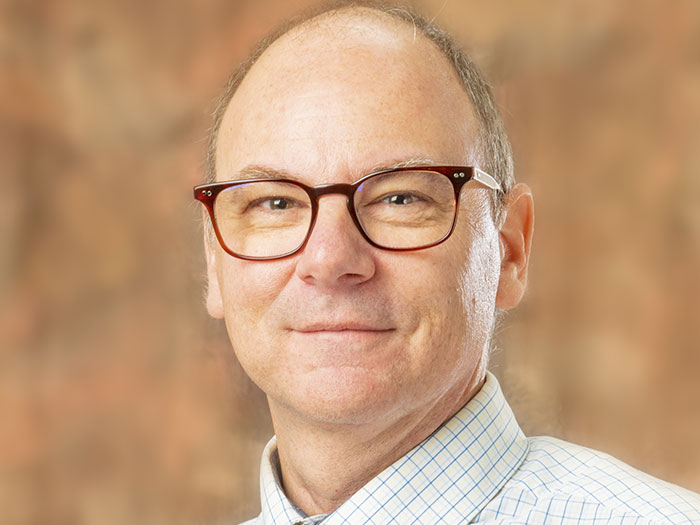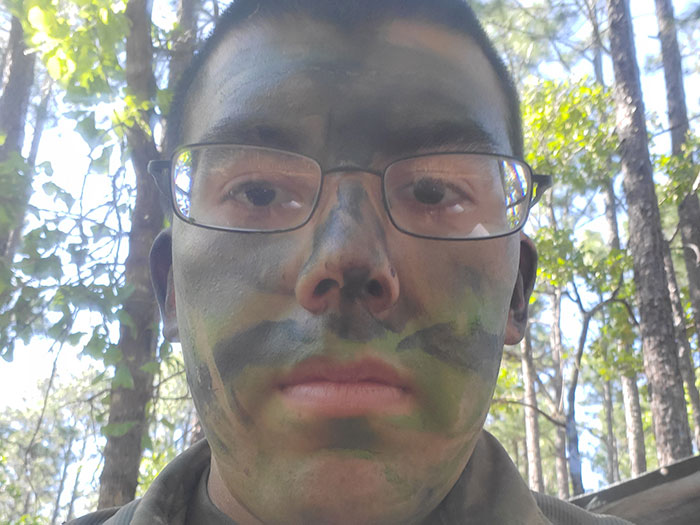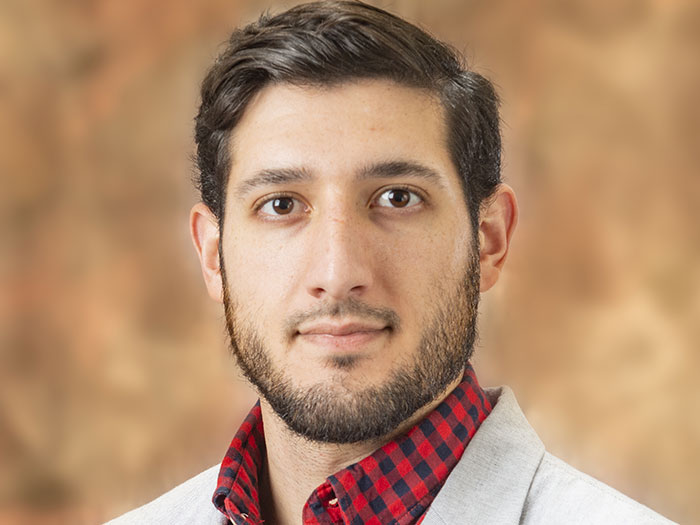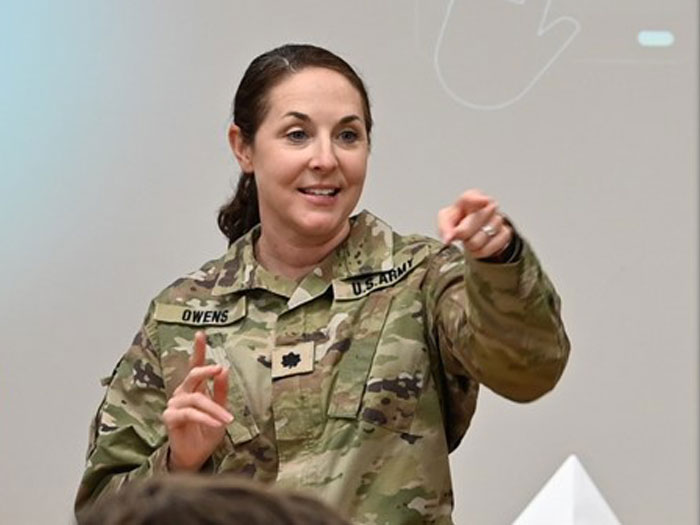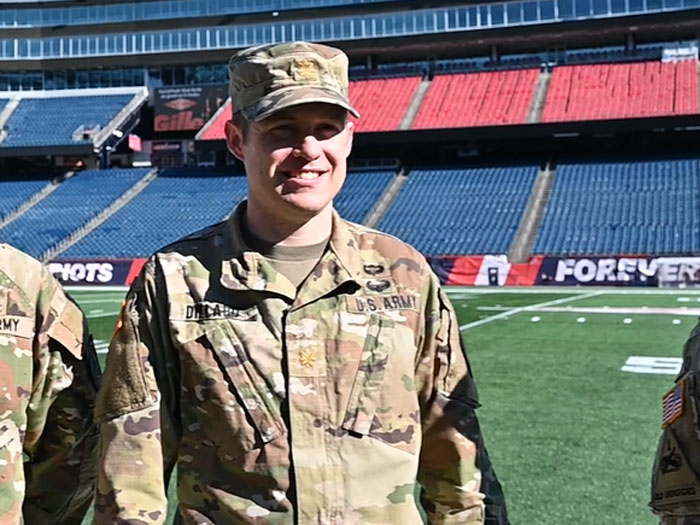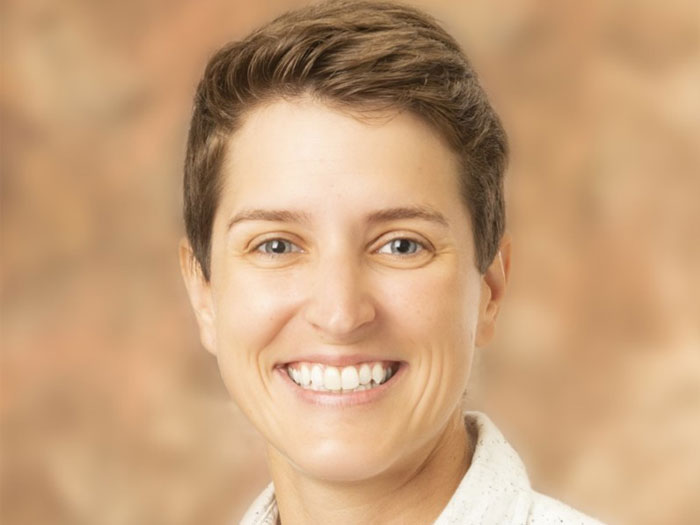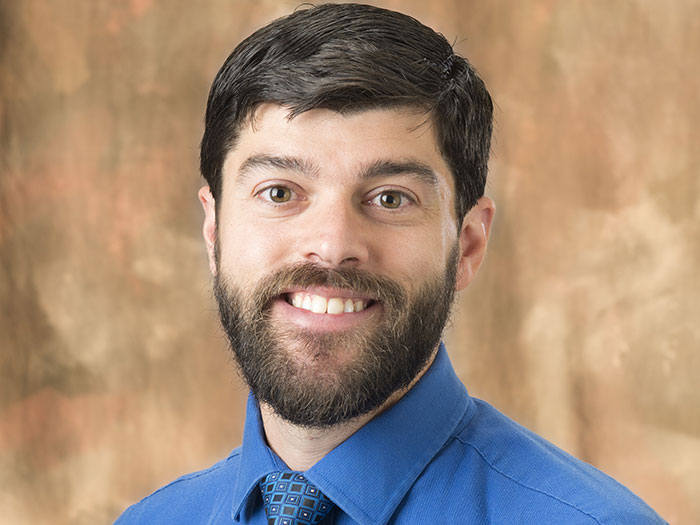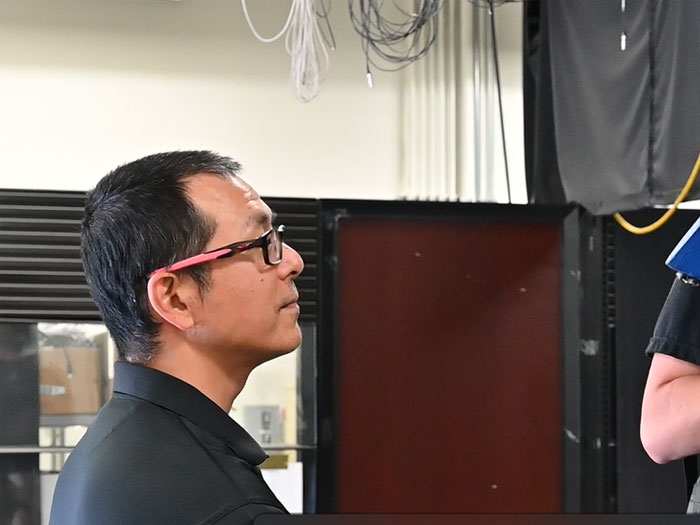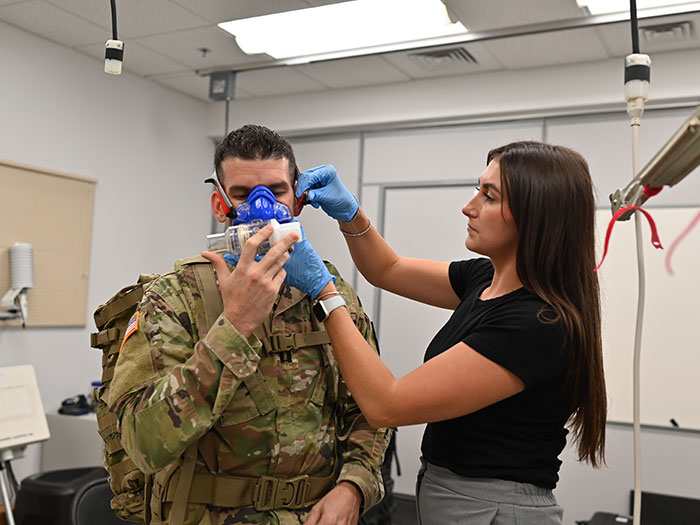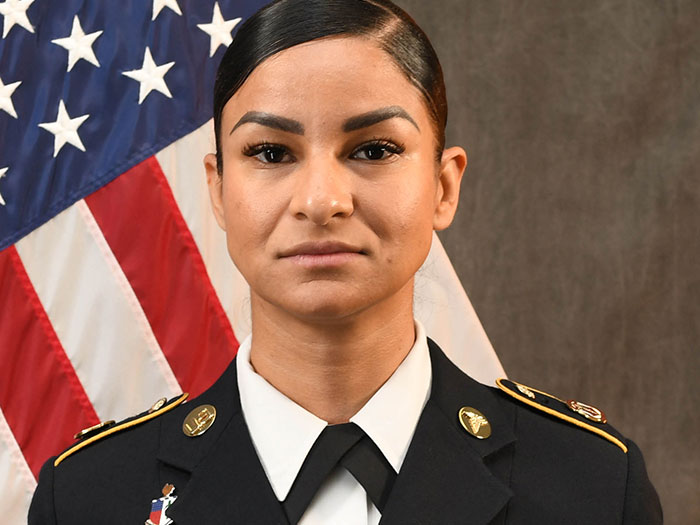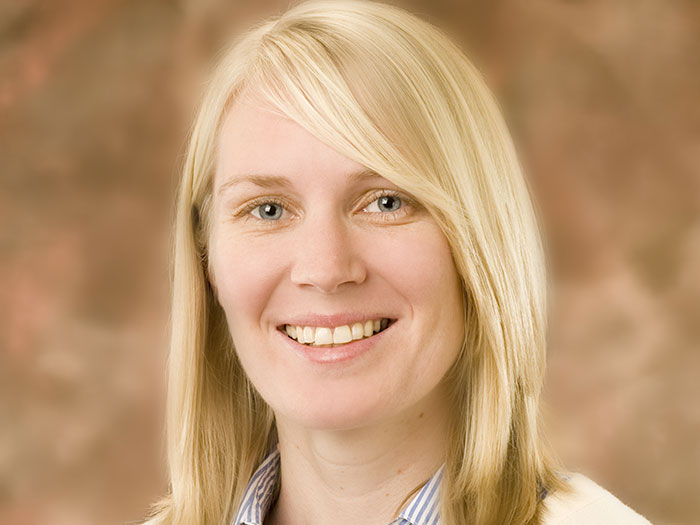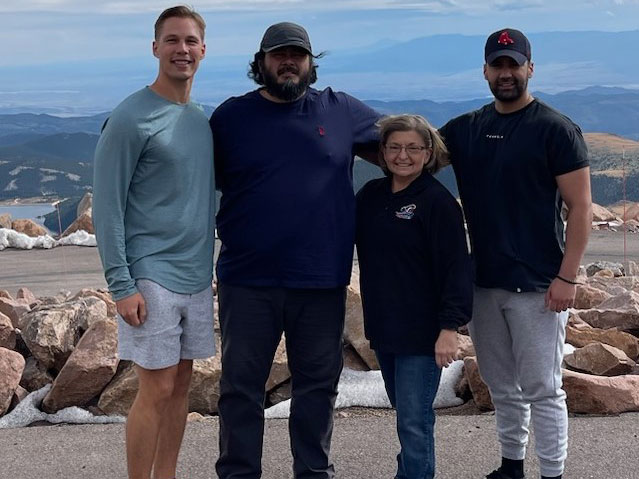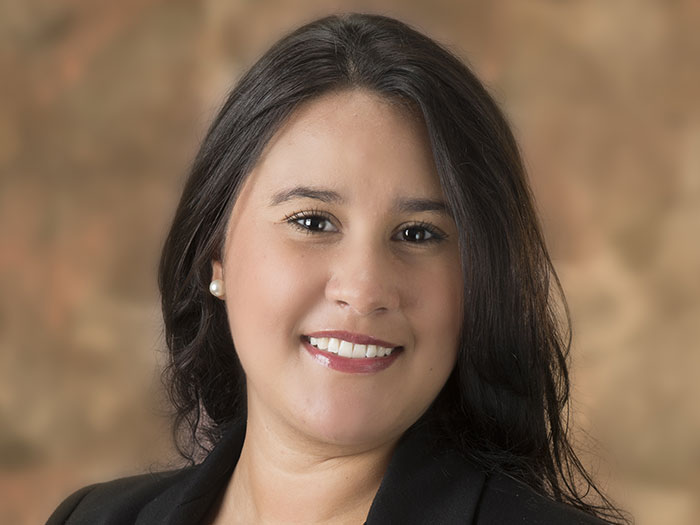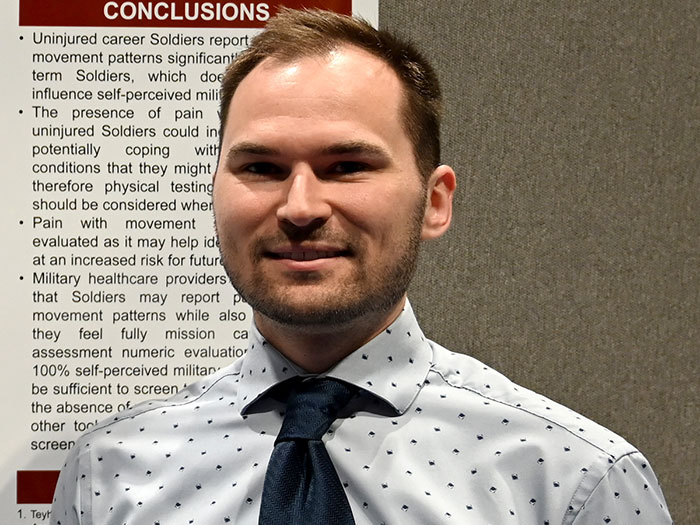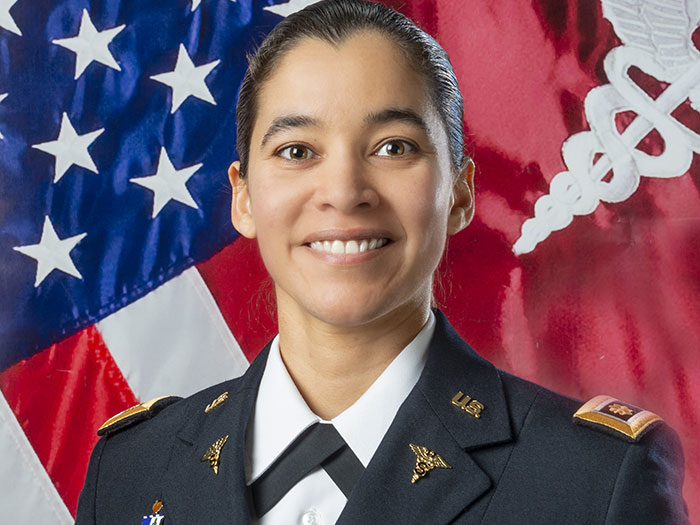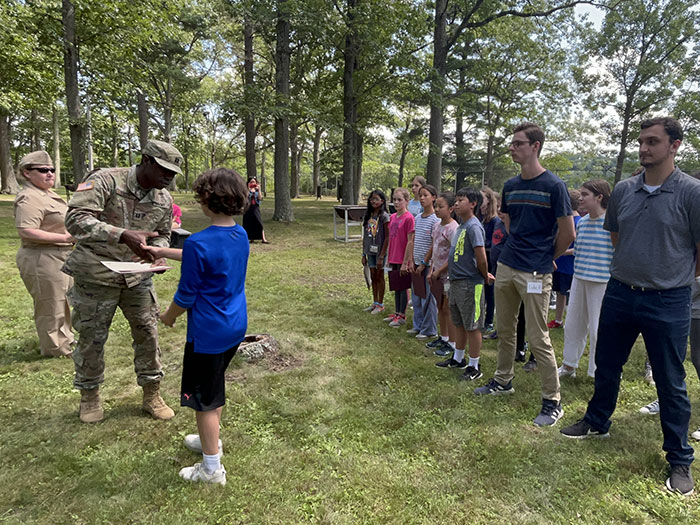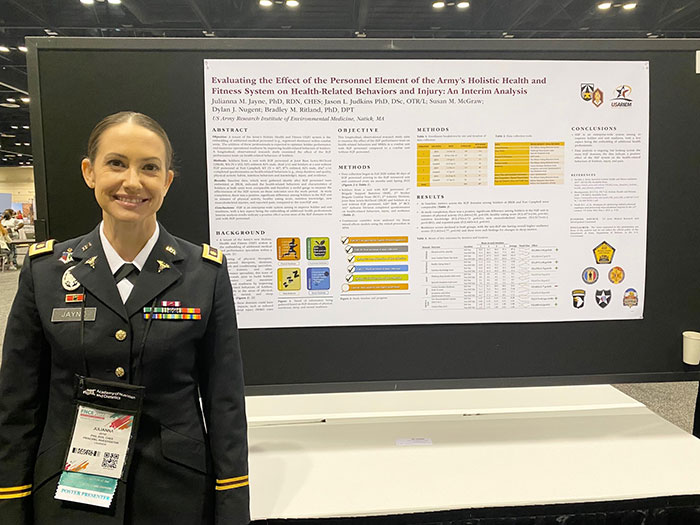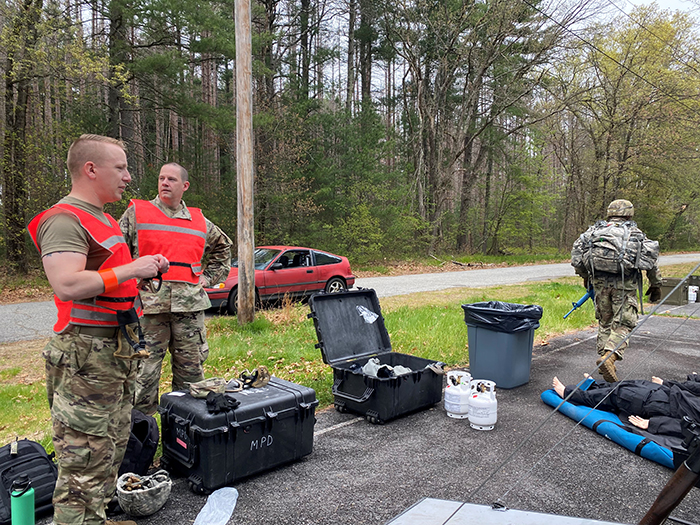Behind the Science with Devin Connolly, M.S., Research Fellow in the Military Nutrition Division
How long have you been at the U.S. Army Research Institute of Environmental Medicine?
I have been at USARIEM for more than six months, starting in the fall of 2023.
How did you become interested in Soldier Nutrition and Performance?
As a Marine Corps veteran, military nutrition and performance were a big part of my life for four years and the original research behind these facets always remained elusive. My graduate studies led me to find the abundance of papers coming from USARIEM on extreme environments. One of my professors connected me with USARIEM and ultimately my future advisor who was studying the gut microbiome. As I was finishing my thesis project on quinoa and the gut microbiome, I was thrilled at an offer to join the team at USARIEM.
What projects are you currently working on?
I am currently involved in several projects including prebiotic and probiotic supplementation effects on warfighter cognitive and endurance performance while I am also conducting a systematic review covering effects of hypoxia on the gut microbiome.
What aspects of your job do you love and find most gratifying?
Helping with so many different projects, each at a different stage, makes work much more engaging and compelling. From data collection to scientific writing, to wet lab work, to data analysis, each day brings satisfaction from a different practice.
Working with a team that bridges the gap between nutrition and exercise physiology so seamlessly is also unique, in my experience. Experts that settle into niche areas of science has become the norm, whereas the scientists at USARIEM have a broad array of expertise and collaborate readily and frequently. The sense of collaboration and teamwork is palpable at USARIEM, fostering a welcome environment for scientific development.
What part of your job do you find to be the most difficult?
The part of my job that I find most difficult is the cumbersome project management and slow data collection that is inherent with any clinical study.
When you are not at the Institute, what do you like to do for fun?
After moving from Washington to Massachusetts, I've traded in my mountaineering boots for running shoes and you can find me on the rail trails, where I trained for my first marathon with my dog at my side. Rest days and bad weather give me the opportunity to perfect my baking craft and tinker with my 3D printer.
2025



2024
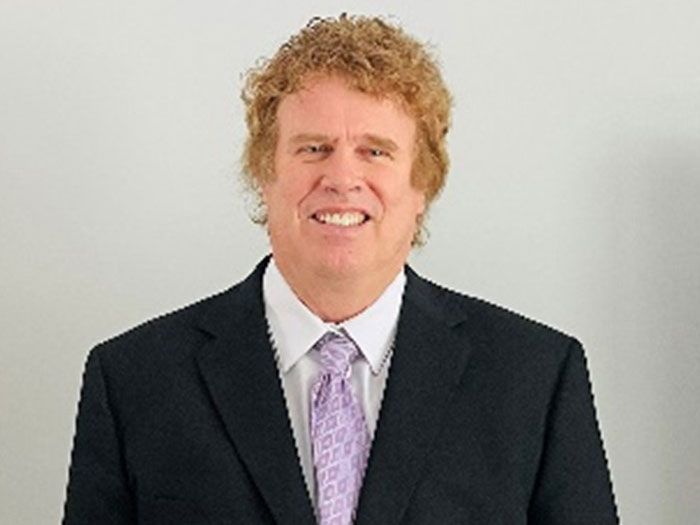
2023
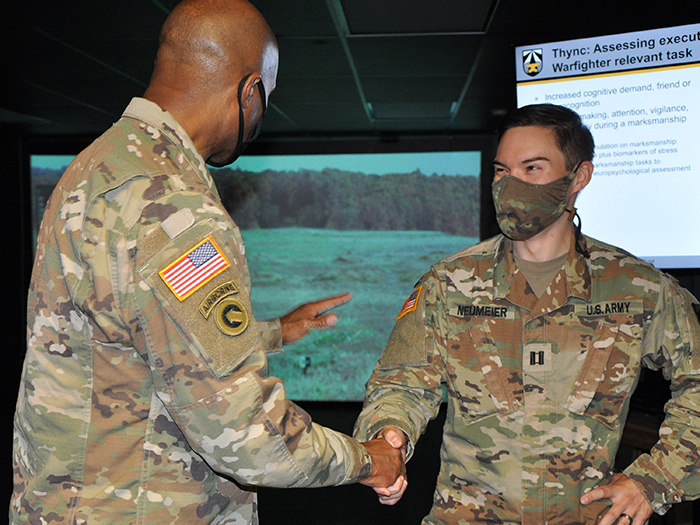
 An official website of the United States government
An official website of the United States government
 ) or https:// means you've safely connected to the .mil website. Share sensitive information only on official, secure websites.
) or https:// means you've safely connected to the .mil website. Share sensitive information only on official, secure websites.



















